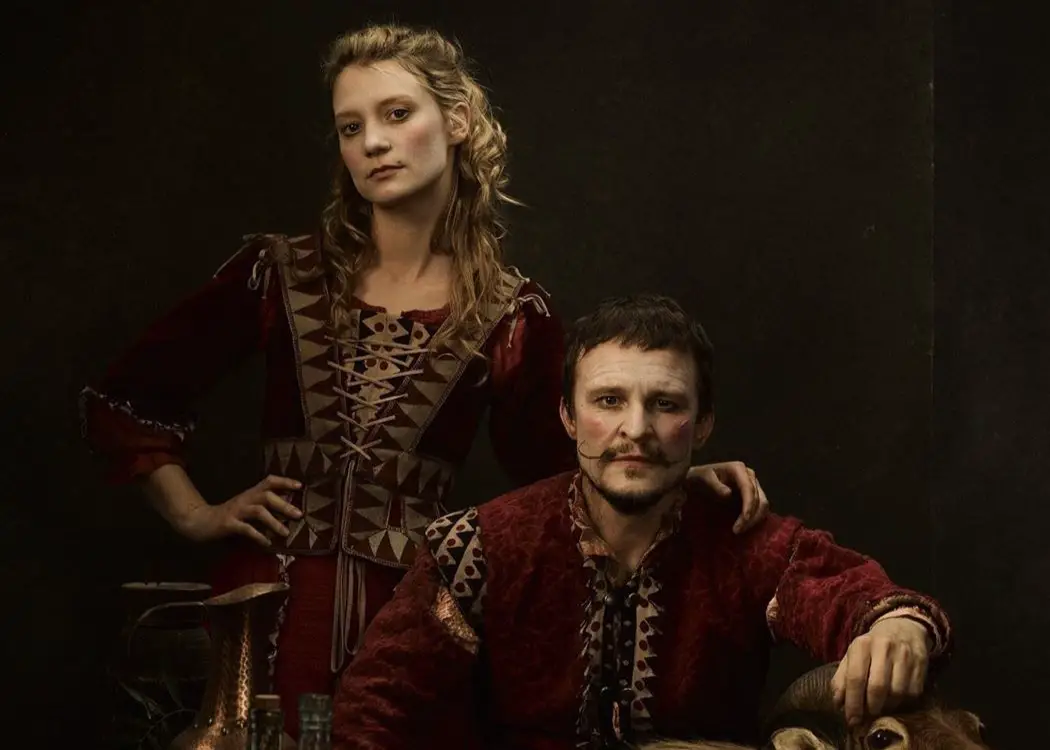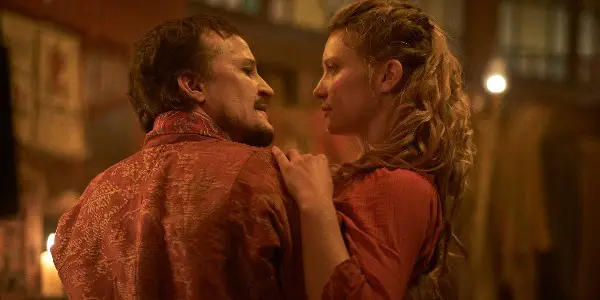CinéfestOZ Film Festival 2019: JUDY & PUNCH

Alex is a 28 year-old West Australian who has a…
It’ll be easy for most critics and audiences alike to compare Mirrah Foulkes’ audacious Judy & Punch against Jennifer Kent’s equally bold The Nightingale; originating from emerging Australian female filmmakers, each gaze into the past – one fictionalised and another utterly too real – to reflect upon how the traumas of history have reverberated into today’s social structures.
Whilst Kent opted for punishing realism, reminiscent of Fred Schepisi, Foulkes’ debut swings towards more indulgent influences, such as the decadence of Baz Luhrmann (sans Jill Billc*ck’s hectic editing of course), delivering a handsomely mounted parable in which style and substance wrestle for control – a struggle which feels amusingly appropriate considering the story at play.
Punching Puppets
Riffing on the British puppet show (the names suitably switched this time), Foulkes’ fairy tale transports us to the fictional land-locked town of Seaside (an irony not lost on the film), a village seeped in rural religious puritanism, stuck in a time where conducting a witch-hunt was a literal task. Seaside’s name isn’t its only unusual aspect tho, an isolated collective fashioned with stylised décor that is torn and tattered at every corner, remnants of something once great, a fitting reflection on the state of the titular couple we’re about to meet.

Introduced in a spell-binding opening scene that immediately draws (or potentially repels) in cautious viewers, Punch (Damon Herriman, having a terrific year) and Judy (Mia Wasikowska) make for one hell of a team on-stage, performing their slapstick puppet show where Punch performs his namesake upon his female partner, but a different story unveils itself once the red curtain is drawn.
While a threat of domestic violence lingers on every frame, Punch has seemingly curbed his alcoholism, for the sake of returning to his former glory (which was lost to the bottle). When Judy goes out of town briefly, her husband falls back into being half in the bag, leading to a tragic accident involving their young baby – yes, the comparisons to Nightingale are unfortunately close when it comes to certain plot points.
When Judy returns and confronts a (very) drunken Punch, their altercation unwittingly mirrors their eponymous stage show, leaving Judy for dead and Punch having to deliver the greatest performance of his life; that of a humbled, innocent man, whose problems for once didn’t spring from his cataclysmic fists. Saved from the clutches of death by a clan of outcasts – women whose intellect has them targeted as witches – the disgraced puppeteer gears herself up for the road of revenge, but not without the possibility of redemption within a hopeless situation.
Women of Science, Not Magic
It’s no surprise that Judy finds herself at home within a community of bright minds – while Punch boastfully pulled the strings on the stage, it was Judy who pulled his, designing the marionettes that made them stars in a previous life. One glance at their advertising one-sheet tells you everything you need to know about their dynamic; Punch in big bold blocks, with Judy’s name underneath, a middling subtitle that further undercuts her true involvement in the spectacle.
This is as far as Foulkes’ stretches her subtlety – an overwritten, obvious speech near the end spells out this patriarchal take-down in case the entire film didn’t already inform you of such – but despite dazzling dressing and decoration, the gender imbalance is never quite rectified within the actual narrative itself.

All the visual polish cannot mask how how artificially Judy is treated as a person; oscillating from a victim in the first half, to an escort in the second (in the pejorative sense). Whilst Wasikowska imbues her role with a necessary warmth that naturally covers up how thinly she’s been written, it’s Punch who is given all of the snappy dialogue, the compelling subplots and majority of the screen-time.
After being revived, Judy is practically a silent participant in her own story, wallowing in her newfound captivity until a third act reveal forces her to finally confront her past demons. There’s an intriguing comparison between the stone-wall industrialism of Seaside and the mythical forests where the resistant women live – whose radiant compositions are frequently apposed for maximum effect – but these locations receive more equality than their divergent occupants.
This is not to wholly dismiss the work being put on display; the level of originality and ingenuity operating here – from Seaside’s design, all the way down to the anarchocristic soundtrack that help bring it to full Monty Python-esque absurdity – is refreshing to see, especially within the realm of the modern Australian film industry.
An inclusion in the program for the upcoming London Film Festival (and coming off a premiere at Sundance) suggests a healthy future for this title, one which moulds itself inside multiple genres – fantasy, black comedy and revenge drama are viciously blended together – but it’s hard to resolve exactly who this is for; overly off-beat for most, while midnight audiences might find that Judy & Punch runs out of steam far too quickly – and I feel bad for whoever has to design its future advertising materials (hell, the one from within the film should work fine enough, considering its contents).
Judy & Punch: Conclusion
Mirrah Foulkes’ folk tale of misogyny in the Middle Ages is sometimes mischievous, sometimes grim and sometimes utterly volatile, but never formulaic. Its inventive artifice is its greatest weapon, camouflaging a confused screenplay that never quite decides which story it wants to tell – whether it’s reality or in concert, it seems that Punch always gets the last laugh – it’s up to us as to where those chuckles stem from.
Are you excited for Judy & Punch? Let us know in the comments!
Watch Judy & Punch
Does content like this matter to you?
Become a Member and support film journalism. Unlock access to all of Film Inquiry`s great articles. Join a community of like-minded readers who are passionate about cinema - get access to our private members Network, give back to independent filmmakers, and more.













